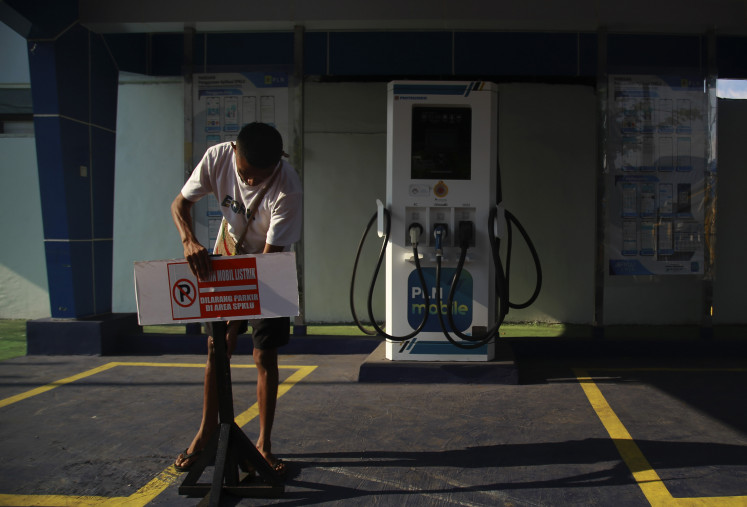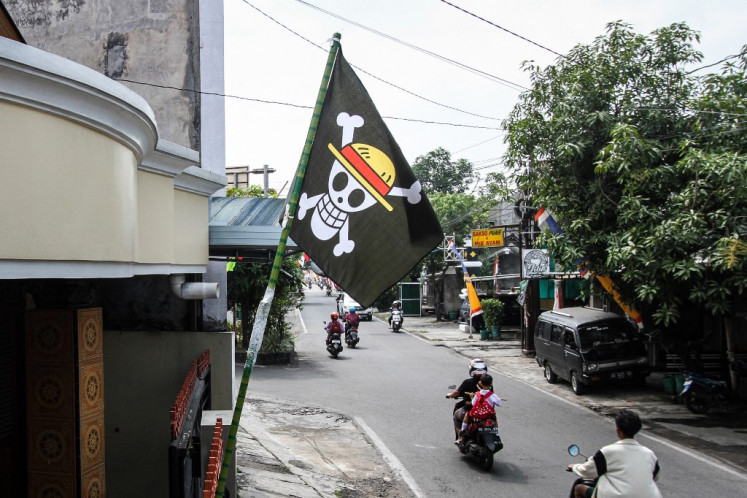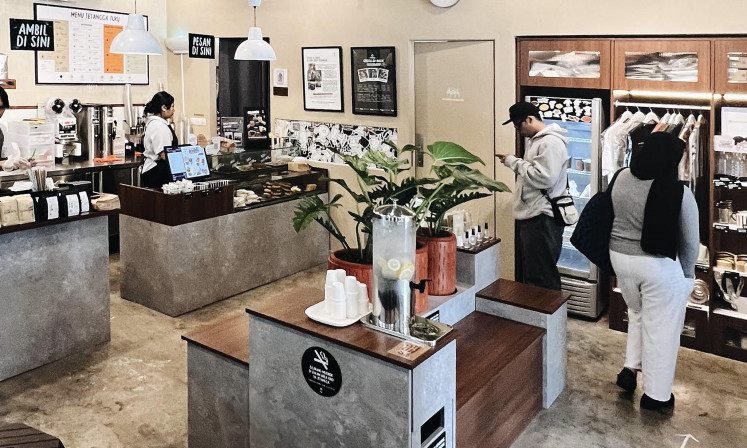Popular Reads
Top Results
Can't find what you're looking for?
View all search resultsPopular Reads
Top Results
Can't find what you're looking for?
View all search resultsTrump tariffs hit India's garment makers as US buyers say move production
To calm US customers' nerves, Pearl Global has offered to shift production to its 17 factories in Bangladesh, Indonesia, Vietnam and Guatemala to bypass the steep US levies on Indian imports.
Change text size
Gift Premium Articles
to Anyone
E
ver since Donald Trump's tariff salvo on India this week, garment maker Pearl Global - whose US client list includes Gap and Kohl's - has been receiving midnight panic calls with an ultimatum: share the tariff hit or move production out of India.
To calm US customers' nerves, Pearl Global has offered to shift production to its 17 factories in Bangladesh, Indonesia, Vietnam and Guatemala to bypass the steep US levies on Indian imports.
"All the customers are already calling me. They want us to [...] shift from India to the other countries," managing director Pallab Banerjee told Reuters in an interview.
Trump's initial tariff proposals in April - which were lower for India than for the rival Asian garment hubs of Bangladesh, Vietnam and China - had been seen as an opportunity for India to rapidly expand in the $16 billion apparel exports market.
But the tables have turned as relations between New Delhi and Washington have soured, with India now facing a 50 percent tariff, versus 20 percent for Bangladesh and Vietnam, and 30 percent for China.
Pearl gets roughly half of its business from the United States. Some clients offered to continue taking products from India if it could share the tariff burden, but that is not viable, Banerjee said, without naming the customers.
'IN THE DOLDRUMS'
The 50 percent US tariff - comprising 25 percent that kicked in on Thursday and another 25 percent due to come into force on Aug. 28 as a penalty for buying Russian oil - has stunned US garment buyers and their Indian suppliers, who say they are considering taking their manufacturing operations beyond Indian shores, even to less-established garment hubs like Ethiopia and Nepal.
Some exporters also say they have been asked by US clients to put orders on hold.
New Delhi has called Trump tariffs "extremely unfortunate".
India's garment sector was already grappling with a labour crunch and limited production capacity. But the prospect of exporters shifting production outside India would also be a blow to Prime Minister Narendra Modi's "Make in India" policy drive.
While Pearl can use its foreign factories to meet US orders, exporters that rely on domestic factories are set to be hit much harder.
RichaCo Exports has shipped $111 million of garments to the US this year, with clients such as J. Crew Group, customs data shows. All were made in its more than two dozen factories across India. Around 95 percent of its annual Indian revenues come from the United States, said general manager Dinesh Raheja.
"We're exploring setting up a manufacturing base in [Nepal's capital] Kathmandu," he said. "The industry is in the doldrums."
ORDERS ON HOLD
Earlier this week, India's biggest jeweller and watchmaker Titan told Reuters it was looking at shifting some manufacturing to the Middle East to maintain low-tariff access to US markets.
Amit Agarwal, finance chief of top Indian garment maker Raymond, said he was pinning hopes on the company's one factory in Ethiopia - which faces just a 10 percent US tariff and could possibly add more production lines within three months to cater to US clients.
The tariff threat comes as India was emerging as a big alternative for US garment buyers like Walmart, as Bangladesh faces a political crisis, and companies look to diversify supply chains beyond China.
Indian garment hub Tiruppur in the south, considered the country's knitwear capital and which accounts for nearly one-third of apparel exports, was bullish about the future earlier this year when Reuters visited and talked to exporters.
Panic has now descended on the hub.
Some factories in Tiruppur have been asked by customers to hold orders, while some plan to ship as many goods as possible before the full 50 percent tariff kicks in, said Naveen Micheal John, executive director at Cotton Blossom India.
"An importer, which had placed orders for underwear, has come back saying that if you haven't purchased yarns [...] keep it on hold for now," he said.
Some garments in Tiruppur cost US clients as little as $1, while a women's or men's T-shirt can vary from about $3.5-$5, which could soon face 50 percent tariffs, said N. Thirukkumaran, general secretary of the Tiruppur Exporters Association.











